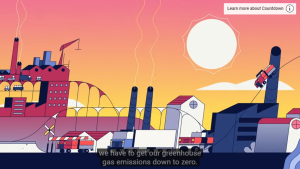What is net-zero and what is its relevance in the fight against climate change?
The term “net-zero” refers to the target of reducing the greenhouse gas (GHG) emissions that cause global warming to zero by balancing the amount released into the atmosphere from sources with the amount removed and stored by carbon sinks. Organisations’ GHG emissions are divided into 3 “Scopes”: Scope 1 (those that an organisation emits through its own operations), Scope 2 (indirect emissions associated with the energy an organisation buys) and Scope 3 (emissions up and down an organisation’s supply chain). Net zero is different from “Carbon Neutral” which refers only to balancing emissions from Scope 1 and Scope 2.
The scientific evidence is clear: emissions of greenhouse gases, resulting from human activity, are causing our climate to change. With the scale of extreme weather we’ve seen over the past few years – from Australian bush fires to flooding in the UK – few people now deny that we are facing a climate emergency.
In June 2019, the UK became the first major economy to pass legislation that commits the country to net zero emissions by 2050 – an ambitious target! To reach net zero, emissions from homes, transport, agriculture and industry will need to be cut. In other words, these sectors will have to reduce the amount of GHG they put into the atmosphere. This can be achieved for example, by switching from fossil fuels to renewables including wind and solar power to generate electricity which is significantly reducing carbon dioxide emissions in many countries. In fact, renewables are projected to supply about 75% of electricity by 2050. More of this in our next blog.
I hope you now have a clear understanding of the term ‘net zero’! Please forward any comments or suggestions! Thank you

